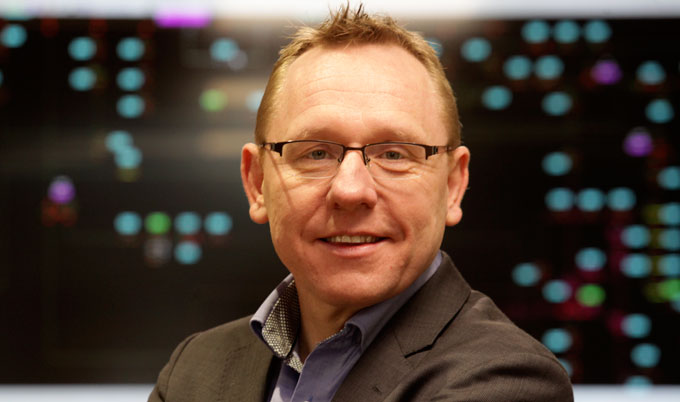Supergen Leaders
Top academic will lead research into energy networks
Published on: 24 August 2017
Professor Phil Taylor has been named as one of the three Supergen Leaders selected to prepare research hub bids.
The world-leading expert in the field of energy systems engineering is among the three leaders who have been identified to lead the next phase of the Supergen Programme. The project will ultimately draw up detailed proposals to establish new hubs investigating ground-breaking new approaches to sustainable energy technologies, whilst addressing user-inspired challenges in the sector.
As part of the Supergen Programme, managed by the Engineering and Physical Sciences Research Council (EPSRC), they have received six-month grants to prepare and build consortia, scope out research strategies and devise networking and engagement plans designed to maximise impact in their fields. If they are successful at a second stage in 2018, they will each be awarded £5 million of funding to establish the new hubs.

Securing a lower carbon future
Led by Professor Phil Taylor, the Supergen Energy Networks Hub aims to establish a vibrant, well-connected, diverse, open and communicative energy networks community with a deeper understanding of whole systems approaches to energy networks. The EPSRC funding for initial six-month grant is £149,944.
Despite their vital importance to the UK’s energy sector, industry and society, there is no current whole systems approach to studying the interconnected and interdependent nature of energy network infrastructure, and the challenges it faces. The hub would integrate a wide range of stakeholders while complementing national and international investments in energy networks, with the hub designed to allow all stakeholders to fully exploit opportunities in the sector.
Speaking about EPSRC’s announcement, Professor Taylor, Deputy Pro-Vice-Chancellor of the Faculty of Science, Agriculture and Engineering, said: “The Supergen programme is all about exploring areas of energy research that can secure a lower carbon future and transform our energy system for future global society. This award gives Newcastle University the chance to build and lead a consortium of academic and industrial partners who want to change the way our global energy system works and achieve carbon reductions.
Dr Sara Walker, senior lecturer and fellow investigator on the project, added: “Innovation for clean energy needs to happen through collaborating internationally and Newcastle University is a major international hub of expertise for energy and power.”
This award is the latest addition to a wide range of energy research at Newcastle University that includes working with Northumbrian Water to explore energy-efficient sewage treatment techniques, leading the National Centre for Energy Systems Integration in partnership with engineering giant Siemens, and a Smart Grids laboratory – for studying next generation electricity grids – in the University’s new £58m Urban Sciences Building that opens next month on Science Central.
Sustainable Power Generation
The other Supergen Leaders identified are: Professor Patricia Thornley, University of Manchester (Bioenergy) and Professor Deborah Greaves, Plymouth University (Offshore Renewable Energy).
The leader-led approach to this call has been introduced after an independent review of the Supergen Programme recommended that Principal Investigators or Directors should be enabled to act as strategic and thought leaders to provide direction and sign-posting research for users.
The Supergen Programme was set up in 2001 to deliver sustained and coordinated research on Sustainable PowER GENeration and supply, focusing on eight key research areas: bioenergy; energy networks; energy storage; fuel cells; hydrogen and other vectors; marine, wave and tidal; solar technology; and wind power.
EPSRC has supported seven Supergen hubs with £150 million of investment over the last five years (including calls and Centres for Doctoral Training) and the initiative has led to the development of new tools and technologies, such as pre-treatment technologies for emission reduction in bioenergy; greater collaboration between academia, government and industry; the creation of new strategies and innovation programmes, such as in CHP fuel cells; and provided an opportunity for international collaboration.
Three of EPSRC’s fellow Research Councils are providing funding and other support for the proposed new hubs: the Biotechnology and Biological Sciences Research Council (bioenergy); the Natural Environment Research Council (offshore renewable energy); and the Economic and Social Research Council (technical and people aspects of all three proposed hubs).
Press release adapted with thanks from EPSRC. Find out more about the Supergen projects.



